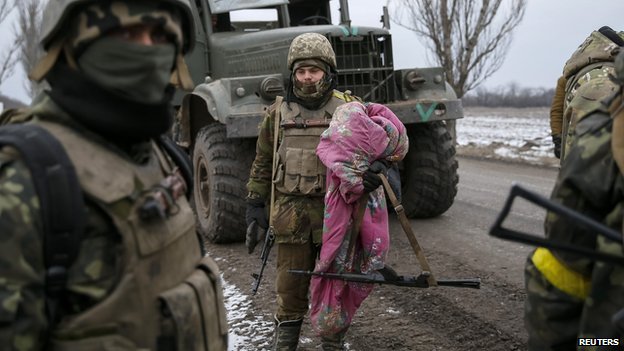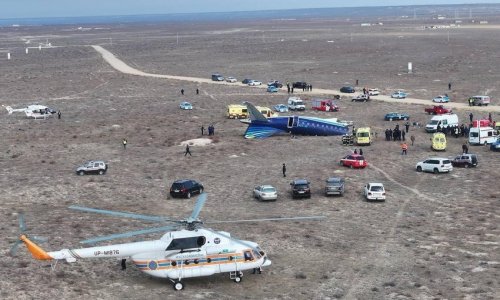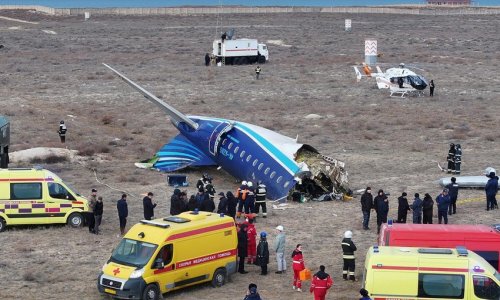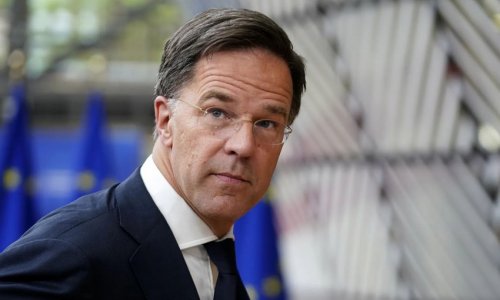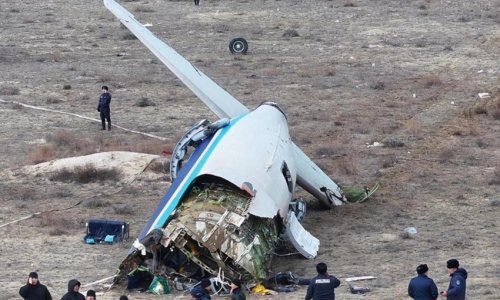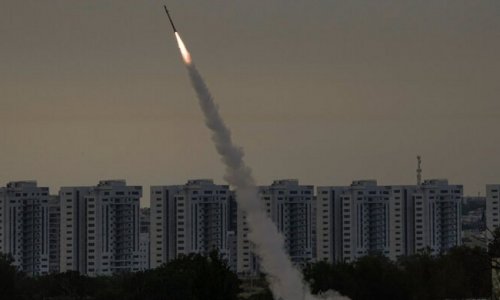Britain and the European Union have been accused of a "catastrophic misreading" of the mood in the Kremlin in the run up to the crisis in Ukraine.
The House of Lords EU committee claimed Europe "sleepwalked" into the crisis.
The EU had not realised the depth of Russian hostility to its plans for closer relations with Ukraine, it said.
It comes as European Council president Donald Tusk called David Cameron to discuss how the EU should respond to the ongoing violence in east Ukraine.
The Lords committee's report also said Britain had not been "active or visible enough" in dealing with the situation.
It blamed cuts in the Foreign and Commonwealth Office, which it said meant the FCO had fewer Russian experts and put less emphasis on analysis.
A similar decline in EU foreign ministries had left them ill-equipped to formulate an "authoritative response" to the situation in Ukraine, it said.
It claimed that for too long the EU's relationship with Moscow had been based on the "optimistic premise" that Russia was on a trajectory to becoming a democratic country.
The result, it said, was a failure to appreciate the depth of Russian hostility when the EU opened talks aimed at establishing an "association agreement" with Ukraine in 2013.
'Unjustifiable and illegal'
Committee chairman Lord Tugendhat said: "It (the committee) believes that the EU, and by implication the UK, was guilty of sleep-walking into this crisis.
"The lack of robust analytical capacity, in both the UK and the EU, effectively led to a catastrophic misreading of the mood in the run-up to the crisis."
The UK had a particular responsibility to Ukraine because it was one of four signatories to the 1994 Budapest Memorandum which pledged to respect Ukraine's territorial integrity, the committee said.
Neither Britain nor the EU had a strategic response on how to handle Russia for the long term, it added.
An FCO spokeswoman said no-one could have predicted the scale of the "unjustifiable and illegal" Russian intervention in eastern Ukraine.
"The blame lies squarely with the pro-Russian separatists, backed by the Russian authorities, not with an Association Agreement between the EU and Ukraine which had been under negotiation for more than seven years before Russia decided to illegally invade and then annex part of its neighbour," she said.
"If the Ukrainian people want a closer social, economic and political relationship with the EU, that is for the people of Ukraine to decide, not Russia," she added.
'Deep concern'
The report comes as the president of the European Council, former Polish Prime Minister Donald Tusk, called David Cameron to discuss the EU's response to the crisis in Ukraine.
A Number 10 statement said: "Mr Tusk said that the EU will be scrutinising the situation on the ground very closely in the coming days and both leaders agreed that European member states would need to review the EU's response accordingly."
It said both men expressed "deep concern" that Russian-backed separatists have continued to attack Debaltseve, despite the ceasefire agreement that came into effect on Sunday.
"They agreed that the EU should make clear to Russia that the pro-Russian rebels must abide by the ceasefire," it went on.
The US has also said it is "deeply troubled" by reports of fighting in eastern Ukraine.
Shelling was reported from several areas on Thursday, including around the rebel-held city of Donetsk.
(BBC)
ANN.Az
Follow us !

